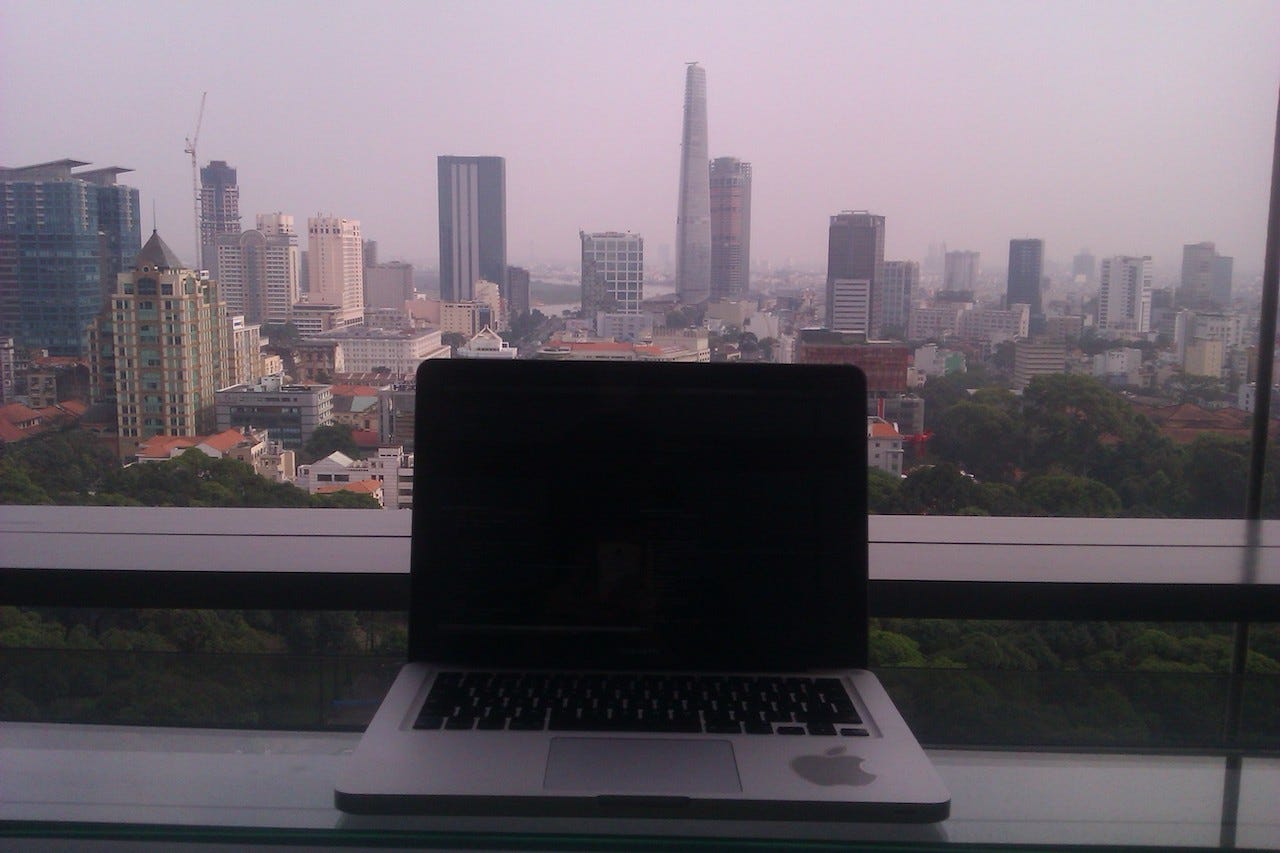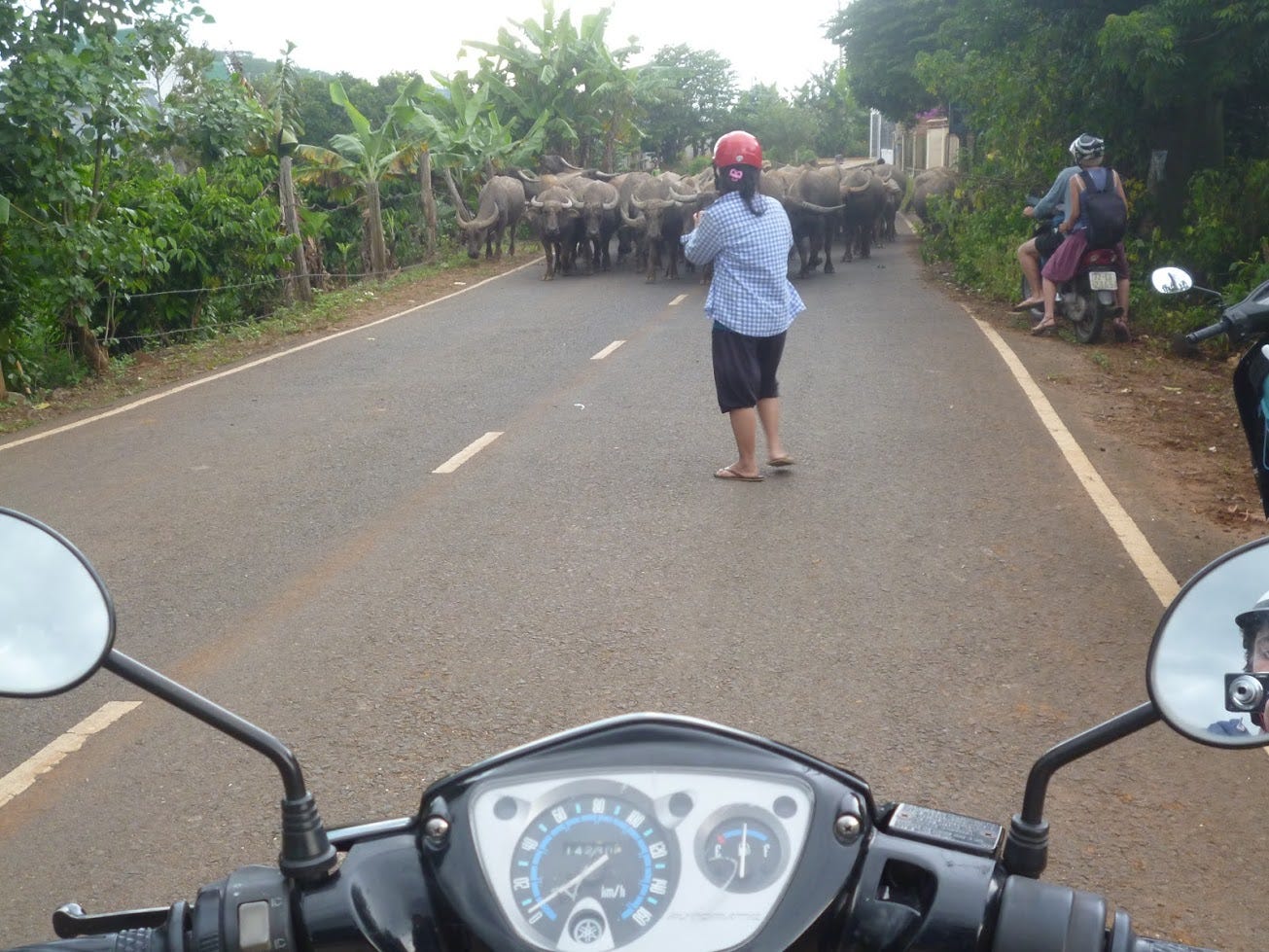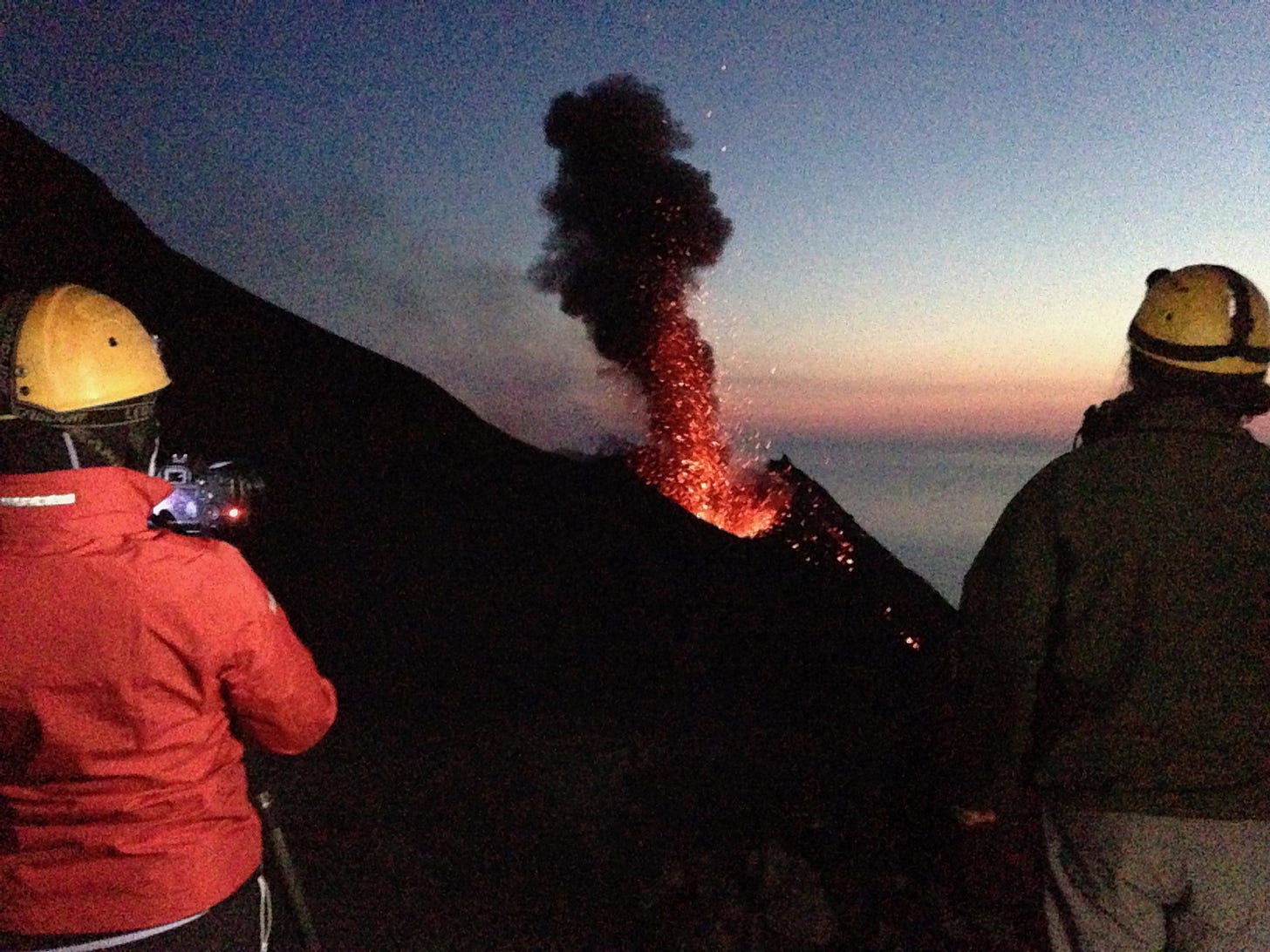I’ve never identified very heavily with the term “digital nomad”, but it’s a fair way to describe how I lived from early 2013 to late 2017, travelling the world while making a living online. Over four and a half years, I lived in five countries and visited another fifteen, supporting myself by writing computer code. Anywhere with Wi-Fi was my office, and most of the time - especially in Southeast Asia, where I spent nearly two years - my social circle consisted mainly of people with similar work arrangements.
Such a lifestyle gets an ungodly amount of hype in certain corners of the Internet, and I drank the Kool-Aid. Becoming a digital nomad, even if I didn’t use that terminology, had been my obsession for a long time. When I finally left the U.K. it felt like a dream was coming true.
And now here I am, back in Blighty for three years and counting. How time flies. I won’t rule it out, but I’m unlikely to become a digital nomad again soon.
Was it everything I expected? I’m not sure what I did expect. It’s a weird lifestyle, and having been immersed in it for so long it’s hard to remember how I felt going in. But if I could talk to my 22 year-old self as he was boarding that plane, here’s what I think he hadn’t figured out yet:
Digital Nomadism is Easy
So what does it take to become a digital nomad? The truth is: not much.
No business? No problem. Move to a hub like Saigon or Chiang Mai and you’ll probably be fine. Cost of living is so low in these places that with a little bit of savings you’ll have a long time to figure things out. If you run out of money, teach English.
But that’s the thing. Becoming a digital nomad isn’t easy - it’s laughably easy. You don’t need a trust fund or a “muse” or a six-figure business or even a credit card. All you need is a laptop, an obsessive personality, and a high tolerance for uncertainty. (Youthful arrogance helps too, or at least it worked wonders for me.) While many digital nomads are successful entrepreneurs with real businesses making serious money, many are not. Sometimes in Chiang Mai it’s hard to tell the difference.
I might get flak for saying this, but few nomads would bother with life in Southeast Asia if it wasn’t so “cheap”. That word deserves its scare quotes for reasons I’ll explore shortly, but it’s still true that I made a pittance by British standards for my first eighteen months on the road. It was still enough to rent a big house in the centre of Saigon, eat out for every meal and afford most of the things I wanted, but it hardly made me a success.
Perhaps the real appeal of digital nomadism is that it’s not falsifiable. The more you forsake a “traditional” career or life path, the harder it becomes for anyone to prove you wrong. The criteria for success are so vague that it’s impossible to know if you’ve failed.
There’s a lot to like about Southeast Asia, and not just the prices. Digital nomads love to talk about how “cheap”, “easy” or “low-pressure” places like Chiang Mai are; they’re good places to “bootstrap”, i.e. reduce your expenses to a minimum while you take a risk on a new venture. You’ll be amazed by how little time, effort and money it takes to get certain things done in these countries compared to what you might be used to back home. But let’s be mindful of our language.
The average Vietnamese person in Saigon makes something like $200 US a month. For a twenty-something fresh out of university, it’s probably more like $80, and that’s before tax. Even English teachers in Saigon make dozens of times more than that. If you were making huge multiples of the average salary in Zurich, you might think that city is “cheap” too.
These countries aren’t easy. Nor are they cheap. What they are is poor. It’s nice as a rich Westerner to be able to take advantage of favourable exchange rates and live a lifestyle far beyond what’s possible back home. Just don’t kid yourself into thinking you’ve earned it.
Digital Nomadism Is Selfish
If there’s one book every digital nomad has read it’s Tim Ferriss’s uber-bestseller The Four Hour Work Week. “WARNING”, says the back cover, “DO NOT READ UNLESS YOU WANT TO QUIT YOUR JOB.”
Among much else, Ferriss encourages the reader to “dreamline”: write down your wildest goals and fantasies, then work backwards to figure out how you can make them happen. The point is that the thing you’ve been fantasising about - say, that round-the-world backpacking trip - is often far more achievable than you may have realised.
Dreamlining can be valuable, but there’s something you’re not asked to consider: anyone other than yourself. Follow your dreams, chase your passions, do what you want, live life on your own terms, you can have it all, screw what other people think, they don’t know what’s best for you. That’s digital nomadism in a nutshell. It’s all about putting yourself first and minimising your personal sacrifice.
I’m not judging; God knows my own travels were self-indulgent, and I’ve hardly lived a life of sacrifice. It’s not like the typical digital nomad is out there spamming and scamming people; most are doing honest work like everyone else. My point is merely that it’s a self-centred pursuit. Fun, but at the end of the day who cares?
The ultimate irony of this lifestyle is that, in your quest to maximise your freedom you end up limiting yourself. It’s hard to commit to a place, job, hobby, or relationship when you’re keeping your options open. To have it all, you must give things up. Breadth is the enemy of depth, and it’s hard to grow when you don’t put down roots. That’s why most digital nomads eventually get tired of it.
Digital Nomadism is a Monoculture
I’ve never been to Silicon Valley, but I hear the place can be monotonous. Everyone works in tech, and every conversation is about tech and software and start-ups and “disruption” and venture capital; it gets old.
Welcome to the digital nomad world. No-one works for Google, but the conversations are still repetitive. SEO, PPC, FBA. Drop-shipping, cross-selling, split-testing. Landing pages, sales funnels, lead generation. It’s a rare dinner table where you can avoid talk of online business, and even when no-one is talking about work there’s still not much diversity of thought. Digital nomads generally consume the same books and blogs and shows and podcasts, and have similar goals, hobbies, interests, ideas, and political views. (They’re also overwhelmingly male; make of that what you will.)
This didn’t bother me at first. I’m similar to the average digital nomad in all the ways just described, and when I was getting started it was wonderful to meet so many people with whom I had so much in common. It’s just easy to forget when you’re deep in the bubble that there’s a wider world out there. These days the thought of attending another “digital nomad meetup” bores me stiff.
Digital Nomadism is Not the Future
For as long as there have been both nations and businesses, there has been international business. But what we’re seeing now is something truly new. A confluence of technological factors - WiFi, Skype, smartphones, affordable flights - have created a class of worker that couldn’t have existed just twenty years ago.
Given the novelty of the whole thing, it’s easy to get caught up in the hype and think the trend will continue forever. In the future, will we all be nomads?
No. Let’s get real. Most work can’t be done remotely and that’s not going to change any time soon.
For all the bravado and chest-thumping, pretty much every digital nomad does one of the same tiny number of jobs. There are zillions of programmers, a few graphic designers or freelance writers, lots of “internet marketers” (always a suspicious job title), and everyone else runs some kind of e-commerce or SaaS or dropshipping business… or they’re a “consultant”, whatever that means. These are legitimate ways to make money (well, except maybe for some of the “internet marketers”) but they’re a tiny fraction of the world of work, and let’s be honest: they’re not important. When civilisation collapses we’re going to miss the firefighters, doctors, social workers and police officers - none of whom can do their jobs from Thailand - long before anyone misses my Javascript.
No-one in the digital nomad world is doing work that matters. That’s fine; almost no-one anywhere is doing work that matters. I’m sure as hell not. Just watch out for the echo chamber. To hear some people talk, you’d think we could make a serious dent in the world’s most pressing problems if only more people would move to Bali to become Amazon dropshippers or freelance PPC consultants. The embarrassing thing is, I think I used to believe it.
Digital Nomadism is Worth It
It’s a brave new world we live in. All kinds of things are possible that our parents’ generation couldn’t have imagined. Given how much has changed in the last ten years alone, who knows what another decade will bring? Maybe in the near future such a jetsetting lifestyle won’t be nearly as attainable.
All I know is I’m glad I took the opportunities that were available to me. The last thing I would want is to discourage anyone from chasing the digital nomad dream if they think it’s for them. It’s not without its drawbacks, and I wouldn’t want to live that way forever. But it was definitely, definitely worth it.
So let’s end on a positive note. I loved my time as a digital nomad. It was four years of fun, growth, excitement, and adventure. I made amazing friends, learned so much, changed in all kinds of ways for the better, and if I could go back I would do it all again. My misgivings are minor, and my regrets are few.
Buy that one-way ticket if it’s been tempting you. The world is far less deadly, dangerous, difficult and daunting than you think; the hardest part is finding the courage to take the first step.
Here’s to a life of adventure. 🥂
Thanks for reading. For more, follow me on Twitter and Goodreads, and please consider subscribing.








